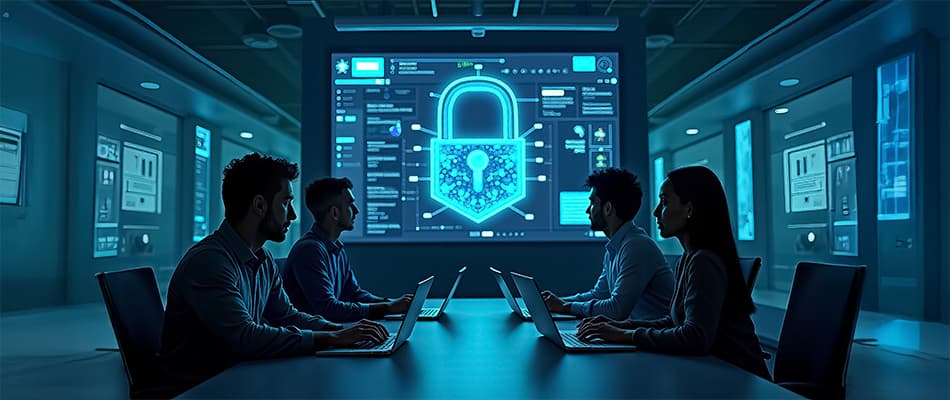What Role Does Technology Play in the Modern Management Advancement Programme (MAP)?
The role of technology in management advancement courses is integral to today’s education and business landscape. With the rapid advancement of digital tools and online platforms, technology has enhanced the learning experience of MAP by making it more accessible, flexible, and engaging for individuals pursuing a career in this field.
Moreover, with the emergence of new technologies, learners get personalised online learning platforms with multimedia content and online resources. Here, the learners can access online materials and lectures at any time without the rigid schedules of traditional education platforms. Besides, today, most businesses are going through digital transformation, integrating digital tools to enhance managerial skills and stay competitive, compelling learners to stay relevant on the latest technologies. So, in this blog, let us walk you through how technology is transforming traditional management practices and education.
Enhanced Accessibility and Flexibility
Traditional classroom-based learning often leads to challenges for individuals who are juggling work obligations, family responsibilities, and other commitments. However, integrating digital tools into management advancement courses has numerous benefits, with enhanced accessibility and flexibility being key advantages. It offers online platforms, webinars, and mobile applications that allow learners to access learning materials at their convenience, eliminating the constraints of traditional classroom learning.
This flexibility allows busy professionals to continuously learn without interfering with their work commitments. That means professionals can tailor their study hours according to their availability and time, ensuring that education doesn’t disrupt their career progression. As a result, by the end of the management certificate programmes, they can be up-to-date with the current trends and drive innovation to their company.
Blended Learning Experience
With the emergence of new technologies and tools, blended learning has become a common practice in management advancement courses. Here, blended learning is the combination of in-person teaching and online education. Hence, the learners can access the course online with course materials, lectures, and projects, enabling them to study at their own pace and convenience. As a result, this blended learning experience can help working professionals seamlessly balance their job commitments and educational plans.
Moreover, integrating technology fosters a learning experience where the learners can interact with peers and instructors in real time through online platforms. Besides, with the inclusion of multimedia content and gamified activities, technology can make even complex management concepts easier to understand and more engaging.
Personalised Contt and Learning Style
Digital tools in MAP empower instructors to provide personalised learning experiences tailored to each student’s unique needs and preferences. By utilising machine learning algorithms and data analytics, programme instructors can analyse student data to identify their weaknesses and strengths and suggest appropriate courses or modules to address their skill gaps and career aspirations.
This individualised approach not only increases involvement but also optimises the effectiveness of the learning journey, resulting in improved outcomes for both students and institutions. Besides, this approach in professional development courses for managers allows them to study at their own pace, optimising the time they spend learning. Moreover, the learners will get an in-depth understanding of complex subjects using online resources, including e-books, interactive quizzes, podcasts, videos, and more.
Practical and Immersive Way For Skill Development
Since modern leadership and management advancement programmes integrate technology, they can fill the gap between theoretical concepts and practical applications. New technologies like virtual reality (VR) and augmented reality (AR) are changing how management principles are taught and applied. VR simulations allow learners to practice decision-making in realistic scenarios, while AR helps with on-the-job training by adding digital information to real-world surroundings.
These advancements improve learning and the practical use of knowledge in management. They also help the learners build problem-solving skills, decision-making ability, and strategic thinking for a better management environment.
Continuous Learning For Professional Development
Most online platforms offer a wide range of courses, webinars, and workshops in management advancement to help learners upskill themselves in their areas of interest. With the help of technology, these online platforms can facilitate continuous learning for learners to help them stay up-to-date with the latest technologies, tools and practices, ensuring career growth. As a result, with the knowledge of critical tools and technologies, learners’ employability will increase, enabling them to contribute to the organisation’s growth.
Furthermore, technology-driven management advancement programmes provide instant feedback to the students on their progress and performance. As a result, the learners can assess their grasp of key concepts and pinpoint areas for improvement, pointing to continuous learning for professional growth.
Global Networking Opportunities and Collaboration
It is a known fact that technology has transformed the world into a global village. Hence, technology-powered management advancement courses help learners network with professionals and experts from around the world. These courses also foster collaborative learning, allowing learners to engage with peers and mentors anywhere in the world.
Today, online ed-tech platforms like Coursera and Digital Regenesys offer forums, discussion boards, and virtual classrooms to help learners share ideas, seek advice, and work together on practical projects. This interactive approach in MAP enhances their learning process and promotes a sense of belonging and connection among each other, promoting knowledge exchange and professional development.
Conclusion
The emergence of digital tools in modern management advancement courses has transformed how students learn, equipping them with the necessary knowledge and skills to succeed in today’s technology-driven economy. Besides, the technology-driven approach emphasises personalised learning, immersive technologies, and data-driven decision-making, all of which are instrumental in reshaping conventional management methods and improving overall organisational effectiveness.
Hence, today, embracing digital innovation is no longer optional – it is a critical strategy for businesses looking to maintain a competitive edge in today’s fast-paced market environment.
Do you want to enrol in a management advancement programme that upholds technological tools and practices? Then visit Digital Regenesys’s Management Advancement Programme now to explore its course curriculum, benefits, fee structure and more.
What Role Does Technology Play in the Modern Management Advancement Programme (MAP)? – FAQs
How do digital tools personalise learning experiences in MAPs?
Digital tools use advanced technology to analyse student data and pinpoint areas of improvement. This allows teachers to suggest personalised courses that align with students’ goals, enhancing their learning experience.
How do online platforms facilitate continuous learning for professional development in management?
Online learning platforms provide diverse courses, webinars, and workshops to assist individuals in developing new skills in their chosen fields. Through technology, these platforms support ongoing learning experiences that enable learners to remain informed about current technologies, tools, and methods for advancing their careers.
What networking opportunities and collaboration options are available in technology-powered MAP?
Technology-driven MAPs open up global networking opportunities with professionals and experts worldwide. Online platforms host forums, discussion boards, and virtual classrooms for learners to interact with peers and mentors, promoting collaborative learning and knowledge sharing.
How does technology impact the employability of learners completing MAP?
Staying up-to-date with technology trends helps students gain valuable skills for today’s competitive job market. It also boosts their chances of landing a job and excelling in their careers.
How do technology-driven MAP provide feedback to students on their progress and performance?
Modern educational platforms powered by technology provide immediate feedback opportunities for students to evaluate their understanding of essential concepts and identify areas for improvement. This ongoing feedback loop supports ongoing learning and development in their field.
Recommended Posts












